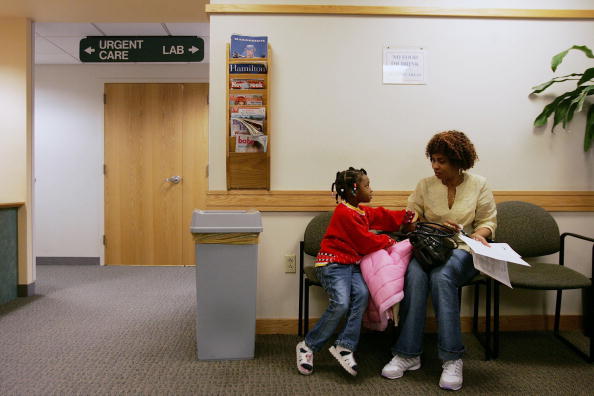To do more than simply stay standing, the NHS must return to its first ideas

Last week, in the wake of the desperately sad passing of TV host Bill Turnbull, BBC Radio 4 dedicated a segment to the importance of prostate cancer screening. “But the NHS can’t cope if every man turns up and demands a test,” said presenter Nick Robinson. This candid, casual reflection highlights a profound deficiency in our health system – its ability to act preventatively and proactively.
One of the cited benefits of state funded universal healthcare over say, an insurance or payment-based system, is that it is much better for preventative healthcare because it’s free at the point of use and therefore removes a major obstacle to going to see a doctor.
Otherwise, patients let symptoms accumulate to the point where it is either too much for a doctor to cover in one appointment, or it has reached a point of severity where the patient may not recover.
Fast forward to today, the priority for the NHS right now is simply to stay standing and deliver the basic requirements of a health system – to reduce record ambulance response times, elective care waiting lists of 7 million people and staff burnout.
Depressingly, the big picture for the UK health and social care system is also not particularly optimistic. The pandemic laid bare the deficiencies of our health systems. The cost of health and social care is enormous: it will account for 44 per cent of all day to day public spending by 2024, up from 27 per cent in 2000.
All the while, outcomes are stagnating if not declining. Life expectancy has fallen for the first time in decades, after plateauing for the last 10 years, and cancer survival rates continue to lag behind those of comparable European countries. Outcomes are not equally distributed – across the UK’s regions, life expectancy can vary by up to 27 years.
While these problems may feel overwhelming and intractable, there is some light at the end of the tunnel. While the current model is getting more unsustainable by the day, health technology is quickly getting more sophisticated, offering some attractive – and underestimated – solutions.
It has the potential to do a lot of the heavy lifting in healthcare delivery – better administration, real time medical monitoring, and rapid advanced diagnostics – and so enabling professionals to get on with their jobs in other ways.
Interestingly, it now also has the ability to restore the preventative element to healthcare without imposing any extra pressure on already buckling NHS resources. Tech can now predict and prevent problems in ways that simply have not been possible before, according to a recent report from the Tony Blair Institute.
It would be misguided to think that tech would solve all of the problems the NHS faces. But tech can lead to very real and tangible outcomes for patients, some faster than others but all incredibly meaningful.
In the short term, wearable technology – smart watches or fitness trackers – to give just one example, have already been used to detect the onset of certain illnesses, including Covid-19, through deviations in an individual’s vital signs. They are now being used to monitor patients with Parkinson’s disease. When scaled across an entire population, their ability to serve as early warning systems and provide lifestyle feedback could be transformational to preventative healthcare.
In the long term, we could move to more effective models of prediction and prevention, enabling much earlier detection of disease. Genomic sequencing – access to analysis of the genetic material we inherit – is critical to understanding our individual disease risk profile and can inform medical decisions to predict, prevent or treat conditions. Importantly, the technology to do this en-masse is quickly getting much less expensive.
Focusing on optimising health rather than simply fighting disease will ultimately make the healthcare system more fiscally sustainable. Prevention will always cost less than reaction. And more broadly, the more people you have in better health the more they are able to work and contribute to the economy and tax base.
Demand is going to rise due to an ageing population, and we can’t just keep throwing more money at the problem to manage increasing demand. At this point, moving to a tech-driven preventative model to reduce demand on the service is a must-have.
We should be envisioning a future where everyone could be screened for cancer, and indeed many other diseases, without adding any extra pressure to the NHS whatsoever. Preventative healthcare was the very foundation of the NHS and it should be our ambition for future generations.
